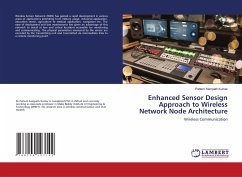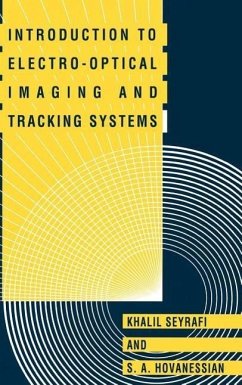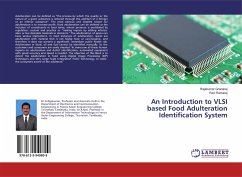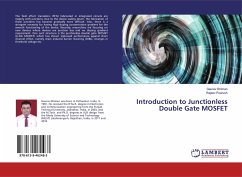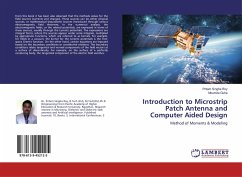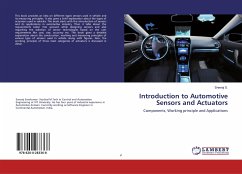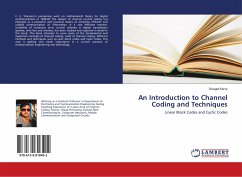
Introduction to FPGA
Versandkostenfrei!
Versandfertig in 1-2 Wochen
40,99 €
inkl. MwSt.

PAYBACK Punkte
20 °P sammeln!
"Introduction to FPGA" is a comprehensive guide that introduces readers to Field-Programmable Gate Arrays (FPGAs) and their significance in modern digital design. The book begins by explaining the basics of FPGA technology, highlighting its reconfigurable nature and advantages over ASICs and general-purpose processors. It covers topics such as Full Custom and Semi-Custom Design methodologies, Standard Cell Design, FPGA building block architectures, and FPGA configuration processes. Readers gain insights into Hardware Description Languages (HDLs) like Verilog and VHDL, essential for describing ...
"Introduction to FPGA" is a comprehensive guide that introduces readers to Field-Programmable Gate Arrays (FPGAs) and their significance in modern digital design. The book begins by explaining the basics of FPGA technology, highlighting its reconfigurable nature and advantages over ASICs and general-purpose processors. It covers topics such as Full Custom and Semi-Custom Design methodologies, Standard Cell Design, FPGA building block architectures, and FPGA configuration processes. Readers gain insights into Hardware Description Languages (HDLs) like Verilog and VHDL, essential for describing digital circuits. The FPGA design flow, FPGA tools, and development environments are thoroughly discussed, providing a practical understanding of the FPGA design process. Case studies and hands-on projects allow readers to apply their knowledge to real-world FPGA implementations, including basic designs, combinational and sequential logic circuits, finite state machines, and IP core integration. The book also explores future trends and emerging technologies, including FPGA advancements, FPGA in neuromorphic computing, and FPGA's role in quantum computing.



